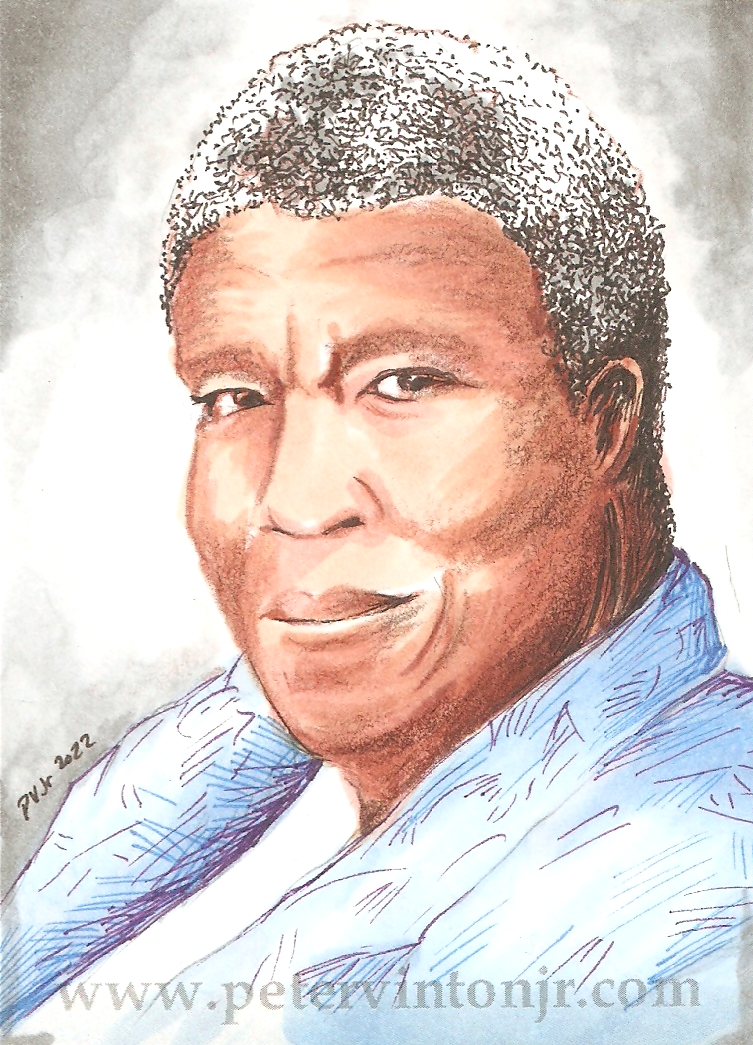
An ongoing illustrative history study
This piece originally posted 10/27/2022
Prelude | 102 | 103 | 104 | 105 | 106 | 107 | 108 | 109 | 110 | Email |
|---|
"First, forget inspiration. Habit is more dependable. Habit will sustain you whether you're inspired or not. Habit will help you finish and polish your stories. Inspiration won't. Habit is persistence in practice."
As a literary genre science fiction challenges us to view humanity through a unique lens; in the context of speculation grounded in scientific plausibility. The best of these works have as their central premise the age-old questions of "Why are we here? What is our purpose? What makes us human?" The amazing body of work produced by author Octavia Butler addresses all of these in a whirlwind of imaginative storytelling, boundless curiosity, and vividly-depicted realities.
Born in 1947 California, Octavia E. "Junie" Butler was raised by her mother and grandmother and buried herself in books due to childhood struggles with dyslexia. Years later she would tell friends that she got into writing at the age of 10, having seen a truly atrocious B-movie titled "Devil Girl from Mars" and asserted that she could write a better story than that. After graduating from Pasadena State College in 1968, Butler fell into a habit of writing every morning at 2:00am. In 1976 her first short story, "Patternmaster," was published, the starting point (though narratively the endpoint) of what would become her highly-regarded Patternist series. In 1979 she published Kindred, a time-travel story about slavery in the United States, that remains her most popular work.
Over the years Butler received numerous literary accolades including a Macarthur Fellowship (the first such science fiction author to do so), and acquired two Hugos and two Nebulas; the former for her gripping Xenogenesis trilogy (Dawn, Adulthood Rites, and Imago); and the latter for her two-part Earthseed series (Parable of the Sower and Parable of the Talents). Xenogenesis explores posthumanist themes of power imbalance and gender fluidity, as the last survivors of humanity must cope with their enslavement by an alien species, the Oankali. The Earthseed series posits life in a post-apocalyptic near-future Earth that ultimately gives rise to a religion rooted in symbiogenesis; teaching that because God is Change, humanity may "shape God."
Butler died very suddenly of a stroke in 2006. In 2019 her alma mater, Pasadena City College, established the Octavia E. Butler Memorial Scholarship. In 2021 the landing site of the Perseverance Rover on Mars, was christened "Octavia E. Butler Landing." A mountain on Pluto's moon Charon also bears her name; and Asteroid 7052 was renamed Octaviabutler by its discoverer, astronomer Eleanor Helin.
Next page - Lesson 107: Robert Smalls